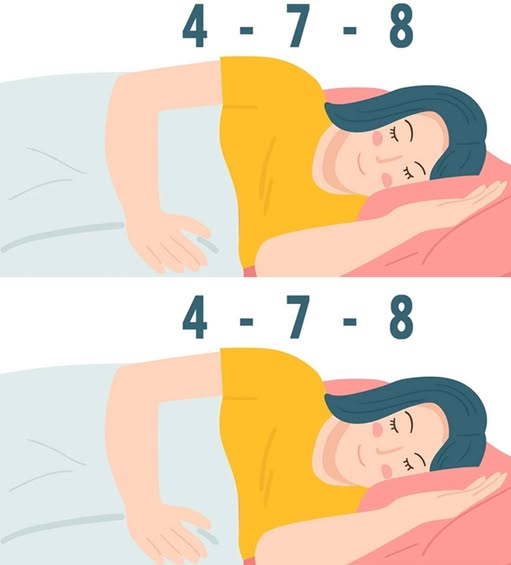You're exhausted, your eyelids are heavy, and yet, once you're in bed... it's impossible to fall asleep. You toss and turn, you count sheep, you curse while looking at the clock. And the minutes turn into hours. Why is it so difficult to fall asleep when you need it most? What if there was a simple method, within everyone's reach, to finally say goodbye to sleepless nights?
A brain that's spinning, a tired body: the bedtime paradox.
After a busy day, we all dream of a good, restful sleep. But as soon as the light goes out, our thoughts start racing. The "musts" and "should haves" start to swirl around and around. The result? Sleep fades away, giving way to frustrating restlessness.
Stress, mental overload, the little worries of everyday life... so many invisible obstacles that disrupt our nights. We feel exhausted but unable to let go. It's paradoxical, isn't it?
The 4-7-8 Method: A Soothing Breathing Ritual
What if the solution was... in your breath? Based on ancestral techniques, the 4-7-8 method was popularized for its ability to calm the nervous system in just a few moments. The principle is childlike, yet truly soothing.
Here's how:
Lie down comfortably, relax your shoulders.
Inhale through your nose for 4 seconds.
Hold your breath for 7 seconds.
Exhale very slowly through your mouth for 8 seconds.
The rhythm may seem unusual at first, but it encourages the body to slow down naturally. The heart calms, the muscles relax, and the mind quiets. We then gently enter a state conducive to sleep.
Why does it really work?
When we are stressed, our breathing becomes shallow and irregular. The heart races, blood pressure rises, and the body prepares for... anything but sleep. Conversely, consciously slowing down your breathing sends a clear message to the brain: "Everything is fine, you can relax."
This method is recommended by many wellness professionals. It can be used in the evening, of course, but also during the day, in moments of tension or strong emotions. Three cycles are often enough to regain a sense of calm.
An ancient technique brought up to date
This type of controlled breathing is not new. It has been used for centuries in several cultures around the world, whether in meditation, yoga, or even traditional rituals. Today, it is making a comeback as a gentle and natural response to the challenges of our time.
What if insomnia persists?
It's important to note that some situations require medical attention. Factors such as hormonal changes, pregnancy, or sleep rhythm disorders can play a role.
If sleep difficulties become recurrent, don't hesitate to talk to a healthcare professional. They will be able to guide you toward solutions tailored to your situation.
